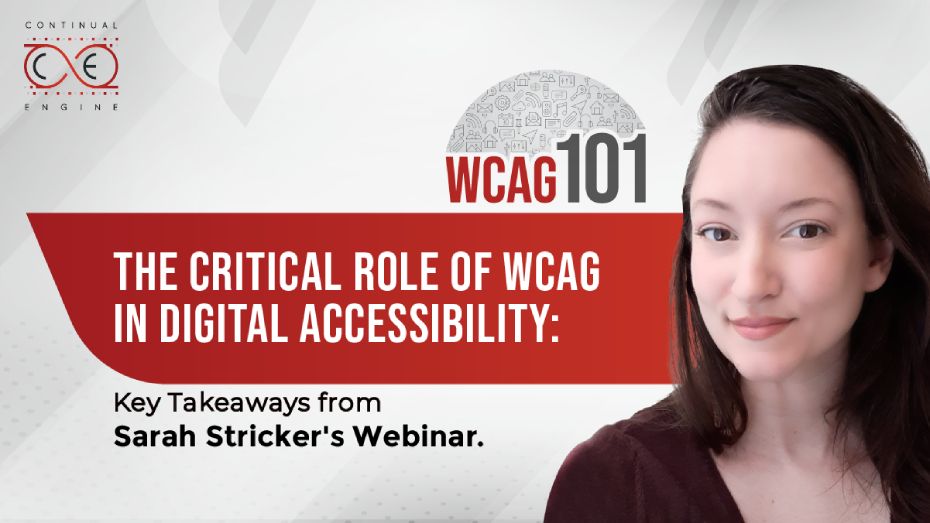Insights from Sarah Stricker’s Webinar: All About WCAG Accessibility And What's Next
Here are the key takeaways from this webinar:
The Role of WCAG and W3C in Digital Accessibility
Usability Principles and Compliance Levels
Compliance with WCAG success criteria is an important measure of accessibility, but not the only measure. Designers and developers should apply the usability principles of WCAG to their designs as much as possible to ensure the best user experience for all users. Compliance levels refer to the level of necessity to conform to success criteria, and there are three levels: A, AA, and AAA. AA-conformance is the most common level of conformance for accessibility laws that refer to WCAG, and many countries use WCAG in their accessibility laws. Federal government organizations or organizations that work with the government in the US must ensure that their digital content is at least WCAG 2.0 AA compliant.
Accessibility Checkers, Automated Testing, and Manual Testing
WCAG Compliance and Future Requirements
Continual Engine as Your Accessibility Partner
Our AI-powered image alt-text authoring and PDF remediation services are designed to help organizations create accessible content faster and more cost-effectively. Our proprietary tool, PREP, enables the remediation of large volumes of pages at unparalleled speed, while our panel of highly qualified SMEs ensures the highest accuracy and compliance. Invicta™, an award-winning, proprietary platform, generates high-quality alt-text descriptions for complex STEM images and automatically tags print PDF and ePub content, making them compatible with JAWS and VoiceOver screen readers.
Whether you must comply with accessibility standards like WCAG, ADA, or Section 508 or want to make your content more inclusive and accessible, Continual Engine has the expertise and technology to help you achieve your goals. Contact us today for a free pilot or quote, and discover how our solutions can transform your content accessibility needs.
Conclusion
In conclusion, the WCAG guidelines are critical to creating an accessible web, and compliance with them is essential. However, designers and developers should also apply the usability principles of WCAG to their designs as much as possible to ensure the best user experience for all users. Accessibility checkers and manual testing can help organizations achieve compliance with WCAG. Additionally, organizations should prepare for future compliance requirements and continue to watch for changes in the criteria. By prioritizing accessibility and implementing WCAG guidelines, we can work towards a better and more equitable world.
